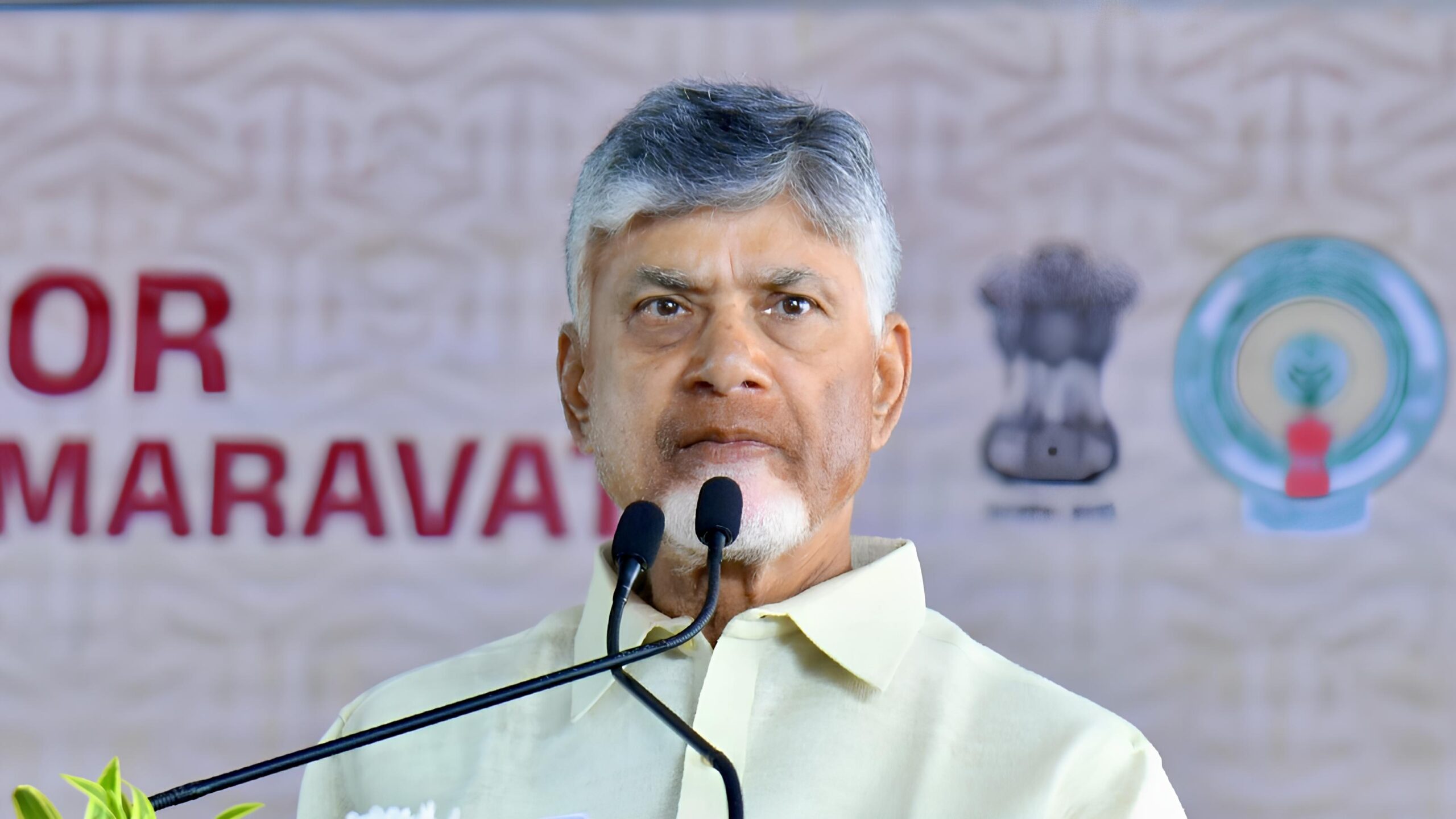Chief Minister Chandrababu Naidu has repeatedly stressed the need for more land to build a ‘world-class capital’, and said that without further land acquisition, Amaravati would remain “just a municipal town, a far cry from the global city the government envisions.”
Published Nov 28, 2025 | 10:17 PM ⚊ Updated Nov 28, 2025 | 10:17 PM

The Chief Minister reportedly firmed up his decision after meeting Amaravati farmers on Thursday.
Synopsis: The Andhra Pradesh Cabinet has approved the acquisition of 16,666 acres of additional land for the second phase of Amaravati’s development, with Chief Minister N Chandrababu Naidu reportedly firming up the decision after securing farmers’ support. The move reflects his long-standing push to build a ‘world-class capital’. Naidu said Amaravati’s progress had become “unstoppable”, aided by financial backing from the Centre.
The Andhra Pradesh government is preparing to acquire 16,666 acres of additional land for the second phase of Amaravati’s development as the State capital.
The State Cabinet, chaired by Chief Minister N Chandrababu Naidu on Friday, 28 November, approved a proposal for the Capital Region Development Authority to acquire land from seven villages: Vaikuntapuram, Pedamadduru, Endarada, Karlapudi, Vadlamanu, Harischandrapuram and Pedamanu.
For the first phase of the Amaravati project during the previous Telugu Desam Party government between 2014 and 2019, 34,000 acres were acquired through the land pooling scheme.
The Chief Minister has repeatedly stressed the need for more land under land pooling to build a ‘world-class capital’.
On Thursday, he said that without further land acquisition, Amaravati would remain “just a municipal town, a far cry from the global city the government envisions.”
The three-hour Cabinet meeting on Friday cleared about 36 agenda items, and approval for land acquisition under the land pooling scheme was the most significant. The proposal had been pending for some time.
The Chief Minister reportedly firmed up his decision after meeting Amaravati farmers on Thursday, during which he is said to have obtained their consent for the additional land pooling.
He reiterated that after the disruption caused by the previous YSRCP administration, the State was “on a ventilator” and the Centre helped revive it.
Naidu also reaffirmed his commitment to Amaravati farmers. “We will never forget their sacrifices. They stood up for the capital and endured great hardship. A total of 29,000 farmers contributed 34,000 acres for the capital. Amaravati is the only region in the world where such a successful land pooling system has been implemented.”
Earlier on Friday, the Chief Minister and the Union Finance Minister Nirmala Sitharaman jointly laid the foundation stones for the headquarters of public sector banks and insurance companies in Amaravati.
An MoU was also signed between the Indian Institute of Astrophysics and the Capital Region Development Authority for establishing an international-standard planetarium.
“We began Amaravati’s reconstruction with the blessings of the Prime Minister. The capital works have now picked up speed. This progress is possible only because of Nirmala Sitharaman’s support. Between 2014 and 19, work was moving rapidly, but then came five years of destruction,” Naidu said, speaking at the event.
“We are restarting everything now. A total of ₹15,000 crore has been allocated for reconstructing the capital, and I thank the Union Minister for ensuring funds are not an issue.”
The Chief Minister said Amaravati’s development had become “unstoppable” owing to the sacrifice of farmers, the cooperation of the Central government and a clear, long-term vision for the capital.
He added that the State was implementing all Central reforms to ensure development and public welfare. Projects worth ₹56,000 crore have already been launched in Amaravati.
The Seed Access Road is nearing completion, seven national highways have been connected to the capital region and a railway line is on the way. “Amaravati will be built in a manner that makes India proud,” he said.
(Edited by Dese Gowda)
